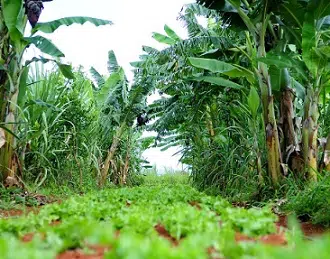 Agroecology is organic farming : the development of crops taking into account the processes of ecology . The idea of ecology, for its part, refers to the study of living beings as members of an ecosystem , emphasizing the links they maintain with the environment and with each other.
Agroecology is organic farming : the development of crops taking into account the processes of ecology . The idea of ecology, for its part, refers to the study of living beings as members of an ecosystem , emphasizing the links they maintain with the environment and with each other.
What agroecology does is consider ecological processes when establishing an agricultural production system . In this way, it focuses on caring for the environment and analyzes the social consequences of its activity.
While traditional agriculture is usually based on high energy consumption and intensive use of land, agroecology understands that the land to be cultivated and its environment constitute an ecosystem. By paying attention to all the components and taking them as a unit, you promote the sustainability of the practices.
According to the Food and Agriculture Organization of the United Nations ( FAO ), agroecology is both a scientific discipline (analyzes the interactions between the components of the system) and a social movement (seeks to generate economic benefits for rural communities and reinforce their cultural identity ) and a set of actions (for the optimization of production). It is a way of relating scientific knowledge and traditional knowledge to generate food in a sustainable way.
Agroecology, in short, is based on how people, animals, plants and the environment interact . Their solutions, which are always local or regional, aim to use and maintain biodiversity , using natural energy (which comes from water, the sun, etc.), recycling biomass and minimizing waste, among other issues.
A list of ten fundamental elements for agroecology emerged from some FAO seminars, some of which have already been lightly mentioned in the previous paragraphs. Its objective is to provide guidance to different countries so that they can convert their agricultural and food systems , overcome the many Sustainable Development Goals (the so-called SDGs ) and can integrate sustainable agriculture at the national level.
These elements, some of which we will evaluate below, can be used as a tool for analyzing decisions and actions, to know if a country is on the right track or if it should reconsider certain issues:
* diversity : this point is necessary on the way to overcoming major challenges, such as the decline in biodiversity, hunger or climate change. It guarantees the conservation, improvement and protection of natural resources, as well as correct nutrition with essential nutrients;
* group work : there is no better way to face a great challenge than with a team of people who share our same objectives. Since knowledge and experience are so important in this case, being able to exchange them with others is a considerable benefit ;
 * synergies : similar to the previous point, the joint action of several parties aimed at the same objective enhances the results, which in this case have a favorable impact on food production and respect for ecosystems;
* synergies : similar to the previous point, the joint action of several parties aimed at the same objective enhances the results, which in this case have a favorable impact on food production and respect for ecosystems;
* efficiency : one of the fundamental pillars of agroecology is the production of more using less;
* recycling : through the different recycling processes, the economic and environmental impact is reduced considerably, without this negatively affecting the quantity or quality of the products;
* values : as in any movement that revolves around life, we should always prioritize respect for the values of each individual and society as a whole. Agroecology seeks benefits for the entire world, not just for an isolated sector.
